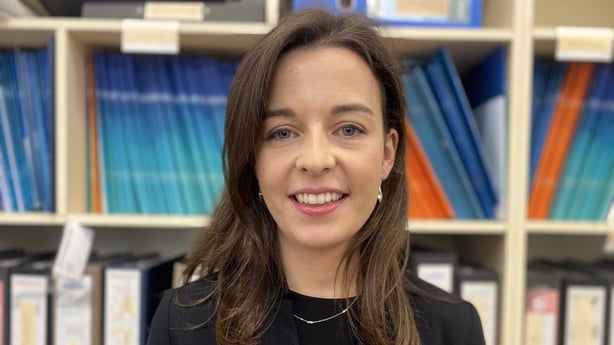The Mercy Law Resource Centre consists of a small team that provides free legal advice and representation to people facing homelessness.
The Dublin-based centre advocates on behalf of clients who are refused access to emergency accommodation.
Last year, there was a 157% increase in queries and systemic issues regarding local authorities and this year is just as busy in that regard.
The Mercy Law Centre has noted increasing difficulties for people who are becoming homeless to access emergency accommodation.
Solicitor Kate Heffernan said its clients are increasingly saying that local authorities are telling them that no emergency accommodation is available.
She said: "They are being refused access for reasons that we say are legally unsound or in some cases people are not being given any reasons whatsoever for the refusal of access and that in and of itself is a breach of public law."
The refusal of accommodation has resulted in people returning to "extremely overcrowded" family homes.

Ms Heffernan said: "They're going back to maybe live in one of the parents homes. But what you'll find often is that even in those homes, there are already siblings with their own children.
"Some people do tell us they are facing rough sleeping, that they really do not have anywhere else to go.
"Some people are sleeping in cars and so it's really not ideal whatsoever when local authorities are refusing people access to emergency accommodation."
A spokesperson for the Department of Housing said it was not aware of local authorities that do not have sufficient emergency accommodation.
The department said that Budget 2024 provided funding of €242m for homeless services - given to local authorities to support the delivery of emergency accommodation and other related services.
It added that the Government recently approved a supplementary estimate of €143m for homeless services.
"This funding was provided to ensure that adequate funding is available to ensure that local authorities can provide emergency accommodation to those who require it," according to the department.
Read more: Number of people recorded as homeless up 15% in past year
However, Mercy Law Resource Centre described a "general reluctance" regarding the provision of additional emergency accommodation places, even though people are meeting the definition of homelessness and are entitled to make these requests for emergency accommodation.
The department said that under the Housing Act 1988, it is a matter for each local authority to determine whether a person is regarded as homeless and Section 2 of the Act sets out the requirements in this regard.
When a household has been assessed as homeless, section 10 of the Housing Act 1988, provides that a local authority may provide accommodation and related services to that household.
However, the Mercy Law Resource Centre has said local authority staff need greater training in the area - particularly local authority workers conducting homelessness assessments on the frontline.
"It's not a straightforward task", according to Ms Heffernan, who said: "And people should be familiar with the legal framework that applies in relation to homelessness".
"Beyond that you do also have to have a grasp of lots of other legal principles that come into play, administrative law, constitutional law, human rights law.
"It's a very serious task which does have very serious consequences for the people who are seeking homeless supports. So we would say greater training of local authority staff is needed."

Sinn Féin's Housing Spokesperson Eoin Ó Broin described the emergency accommodation system across the State as being at "breaking point".
He said homeless service providers were struggling to cope with "the month-on-month rises in people losing their homes".
The department said increasing the supply of housing was critical to supporting households to exit homelessness.
It said almost 12,000 new social homes were delivered in 2023, including 8,110 new build homes, which it said was the highest level of new build social homes in nearly 50 years.
Ms Heffernan pointed out that people are being asked to prove that they have a local connection to a certain local authority area before they're entitled to access homeless support.
She added: "Again, that's not in the legal framework governing homeless support.
"There is a local connection test in the separate legal framework which governs the provision of social housing supports over the long term, but it's not there for homeless support."
The Mercy Law Centre is concerned that a protocol published by the City Management Association has suggested that a local connection test should be applied to people who are seeking homeless supports.
"So we again are very concerned about protocols like that where it's the case that staff within local authorities again are going beyond the scope of their statutory powers and they're applying these protocols or these policy documents which don't have a firm legislative basis, so there would be a rule of law concern there," Ms Heffernan added.







